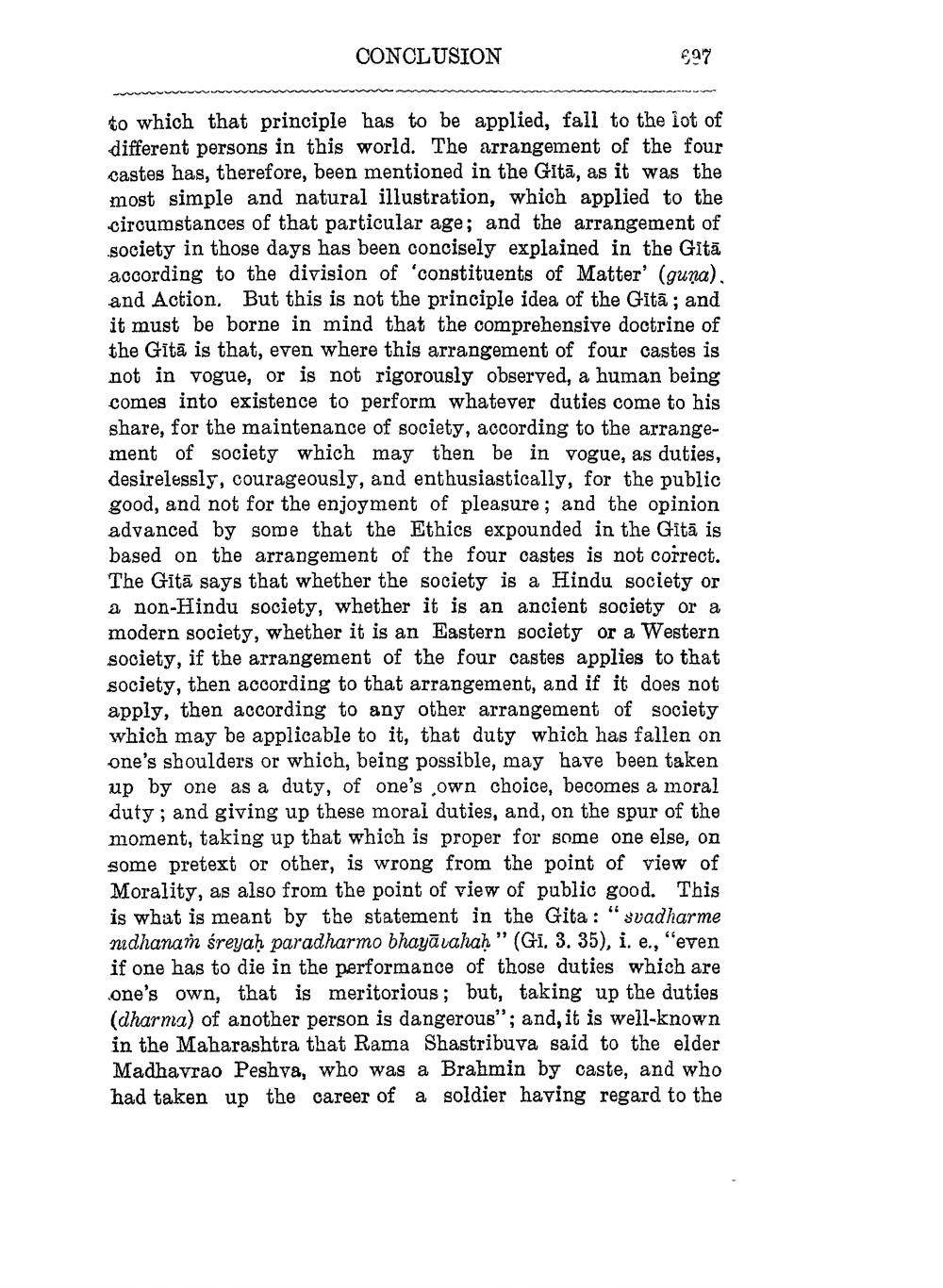________________
CONCLUSION
€97
to which that principle has to be applied, fall to the lot of different persons in this world. The arrangement of the four castes has, therefore, been mentioned in the Gits, as it was the most simple and natural illustration, which applied to the circumstances of that particular age; and the arrangement of society in those days has been concisely explained in the Gita according to the division of 'constituents of Matter' (guna). and Action. But this is not the principle idea of the Gita; and it must be borne in mind that the comprehensive doctrine of the Gita is that, even where this arrangement of four castes is not in vogue, or is not rigorously observed, a human being comes into existence to perform whatever duties come to his share, for the maintenance of society, according to the arrangement of society which may then be in vogue, as duties, desirelessly, courageously, and enthusiastically, for the public good, and not for the enjoyment of pleasure; and the opinion advanced by some that the Ethics expounded in the Gita is based on the arrangement of the four castes is not correct. The Gita says that whether the society is a Hindu society or a non-Hindu society, whether it is an ancient society or a modern society, whether it is an Eastern society or a Western society, if the arrangement of the four castes applies to that society, then according to that arrangement, and if it does not apply, then according to any other arrangement of society which may be applicable to it, that duty which has fallen on one's shoulders or which, being possible, may have been taken up by one as a duty, of one's own choice, becomes a moral duty; and giving up these moral duties, and, on the spur of the moment, taking up that which is proper for some one else, on some pretext or other, is wrong from the point of view of Morality, as also from the point of view of public good. This is what is meant by the statement in the Gita: svadharme nidhanath śreyaḥ paradharmo bhayavahaḥ" (Gi. 3. 35), i. e., "even if one has to die in the performance of those duties which are one's own, that is meritorious; but, taking up the duties (dharma) of another person is dangerous"; and, it is well-known in the Maharashtra that Rama Shastribuva said to the elder Madhavrao Peshvs, who was a Brahmin by caste, and who had taken up the career of a soldier having regard to the
66




